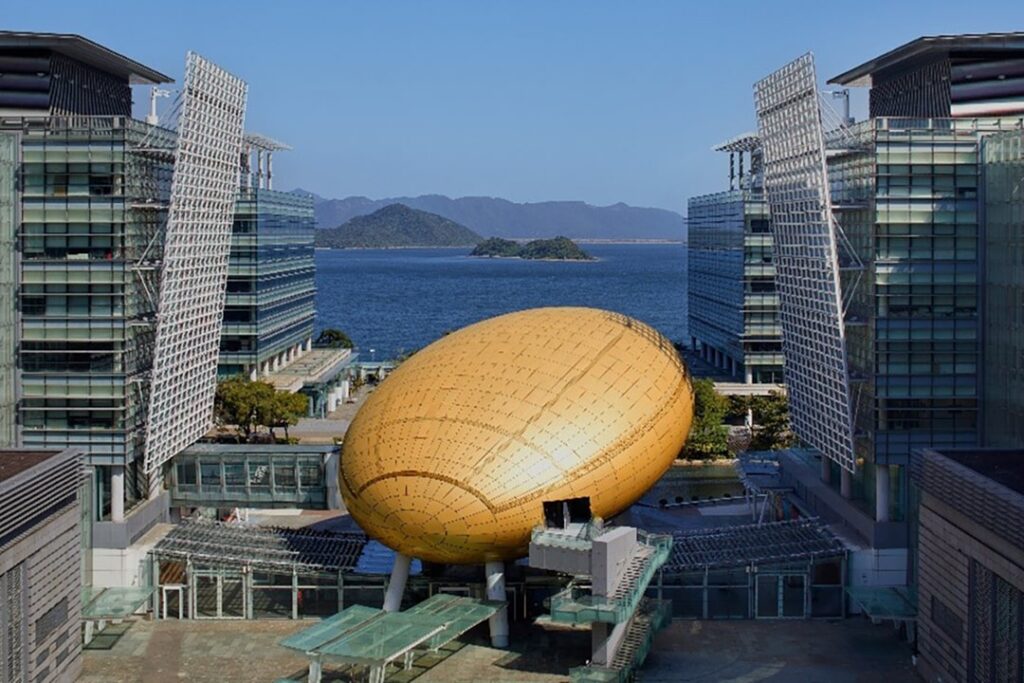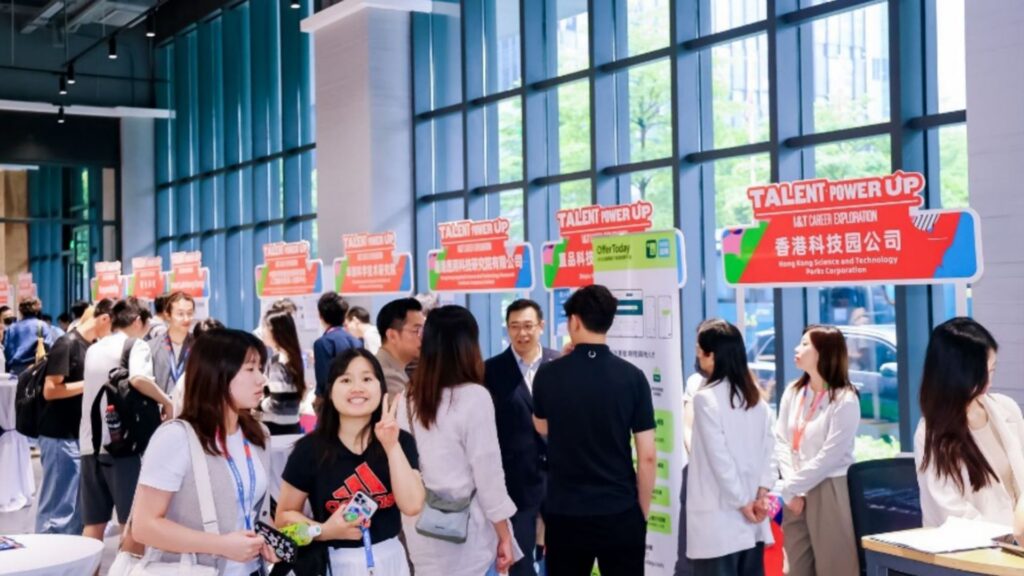With robust support from Hong Kong’s extensive international networks and resources, the Hong Kong Science and Technology Park (HKSTP) has spent over two decades incubating 13 unicorns, including SenseTime, SmartMore, and Lalamove. These companies span diverse industries such as artificial intelligence, robotics, new energy, and lifestyle services, all contributing to the innovation ecosystem that Hong Kong is actively nurturing.
In 2023, HKSTP took a significant step forward by establishing a branch in Shenzhen, underscoring Hong Kong’s ambition to solidify its position as a tech and innovation hub. This expansion aligns with the city’s dual strategies of “bringing in” and “going out.” The first strategy supports local and international companies entering the Greater Bay Area (GBA) and broader mainland markets, while the second positions Hong Kong as a gateway for mainland enterprises seeking global expansion.

Situated in the GBA’s core, the Shenzhen branch is designed to serve as a vital hub, connecting resources and stakeholders from Hong Kong, Shenzhen, and the wider region. The facility spans over 30,000 square meters and has already attracted more than 50 companies. According to HKSTP CEO Albert Wong, the branch’s primary mission is to foster cross-border collaboration between mainland China and the world, facilitating the flow of talent, resources, technology, and capital to cultivate a thriving innovation ecosystem.
Talent is central to HKSTP’s initiatives. With advanced laboratories and modern office spaces, the Shenzhen branch is attracting top global talent to its expanding ecosystem. To enhance this exchange, HKSTP has launched a series of programs. Its 2023–2024 annual report highlights the “Talent Power Up” career expo, which attracted over 6,000 participants and showcased 300 HKSTP enterprises offering more than 3,000 job opportunities, 70% of which focused on technology and R&D roles. Professional job-matching services further aligned attendees with positions suited to their skills.
Beyond recruitment, HKSTP emphasizes talent development through innovation competitions, internships, and industry matchmaking. In collaboration with academic institutions and nonprofits, HKSTP provides hundreds of internships annually. This year, its summer internship program received over 2,000 applications from institutions like Oxford University, University College London (UCL), and UC Berkeley, resulting in placements for more than 300 candidates. Interns gained hands-on experience with innovation-focused enterprises across Hong Kong and the GBA.

HKSTP’s tailored approach to supporting startups is a key aspect of its strategy. Chu Yik-ho, CEO of i2Cool—a startup specializing in electricity-free cooling technology—highlighted how HKSTP evaluates a company’s needs to match them with the right talent. “The park identifies gaps in our team and connects us with the talent required to bridge those gaps,” Chu said.
i2Cool, founded by alumni of The Hong Kong Polytechnic University (PolyU) and City University of Hong Kong (CityU), exemplifies the success of this ecosystem. With incubation support from HKSTP and investments from major GBA entities such as Shenzhen Angel FOF, HKX, Clearwater Bay Capital, and Towngas, i2Cool’s products have been deployed in projects such as Hong Kong’s Central Market and Kai Tak Cruise Terminal. Supported by HKSTP’s cross-border activities, the company is now expanding into the GBA and mainland China. According to Chu, i2Cool’s Shenzhen office also received over 20 applications from Hong Kong for its summer internship programs, allowing it to screen and select compatible candidates to support its initiatives.
Similarly, French materials company Papkot, which develops recyclable and biodegradable paper-based packaging, has benefited from the Shenzhen branch’s cross-regional integration. Matteo Pallotta, Papkot’s general manager for the Asia Pacific and Middle East, described the Shenzhen branch as a “pleasant surprise” and an important factor in promoting the company’s growth in mainland China. Pallotta added that the branch was a decisive reason Papkot chose HKSTP as its base to explore the Asia Pacific and mainland Chinese markets.
Like i2Cool, Papkot has tapped into Hong Kong’s talent pool to drive its growth. Manuel Milliery, founder and CEO of Papkot, noted that nearly 60% of the company’s employees are graduates of Hong Kong’s top universities, renowned for their expertise in materials science. Milliery added that HKSTP provided meaningful support in recruitment efforts.
HKSTP has also attracted leading enterprises such as MGI, a genome sequencing pioneer, which has established its “αLab” within the park. The lab’s centerpiece is a “smart lab” that serves as an integrated platform for sample extraction, data analysis, and environmental monitoring. These capabilities support R&D across various fields, demonstrating how companies can cultivate symbiotic relationships within HKSTP while driving advancements in the biopharmaceutical industry across the GBA and beyond.
These partnerships illustrate why established enterprises choose HKSTP—not for subsidies, but for the unparalleled advantages of its ecosystem. By combining Hong Kong’s global networks, financial systems, and strategic location with the GBA’s growing market opportunities, HKSTP provides complementary strengths across sectors such as AI, microelectronics, and biopharmaceuticals.
HKSTP’s latest annual report identifies its priority areas, including biotechnology, AI, big data, and proptech. Its support extends to funding, capital introductions, market exploration, and resource integration, enabling startups to scale globally.
Through its efforts to attract talent, foster innovation, and connect enterprises to international markets, HKSTP is not only advancing Hong Kong’s innovation ecosystem but also enhancing the GBA’s global competitiveness.
KrASIA Connection features translated and adapted content that was originally published by 36Kr. This article was written by 36Kr.
